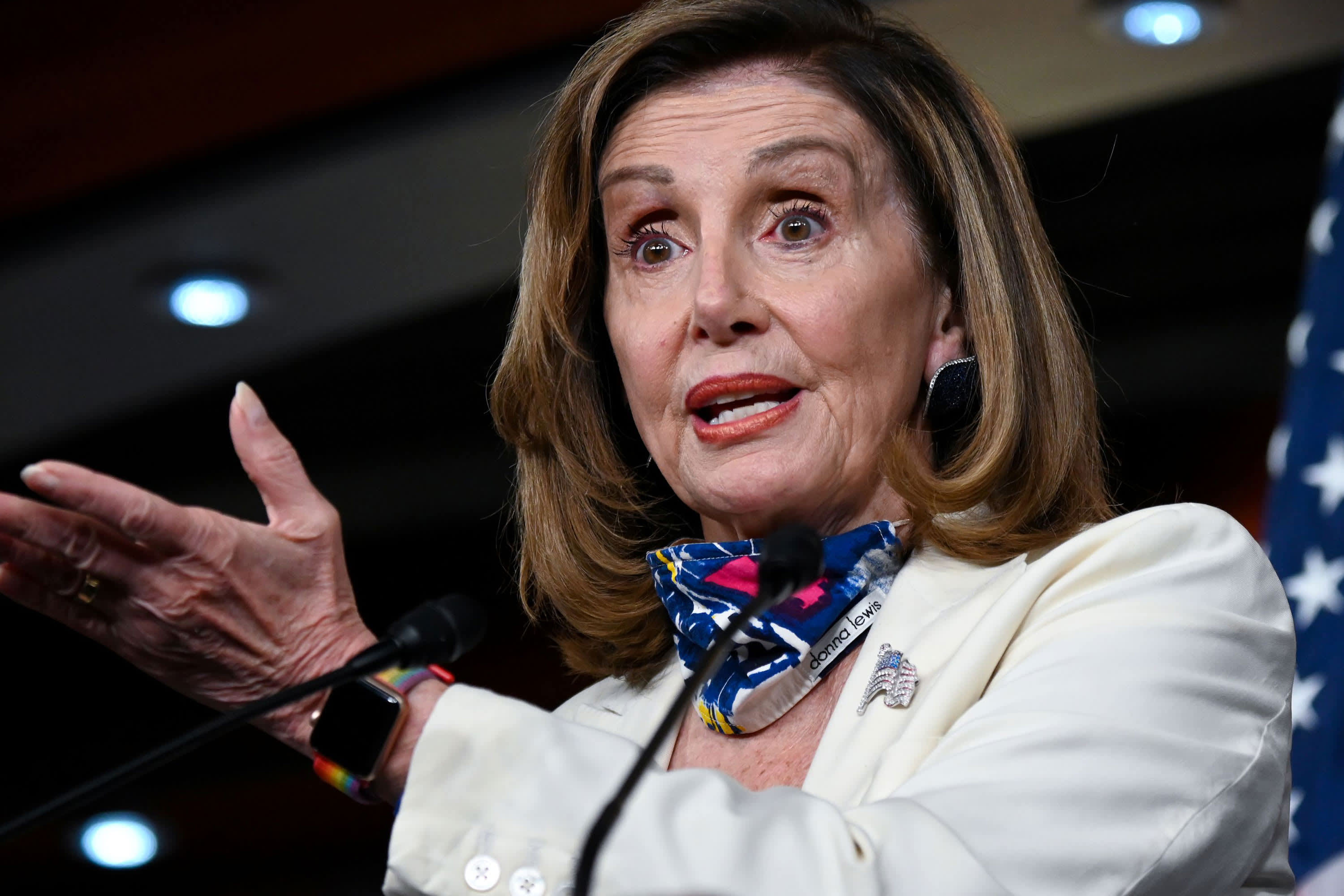
U.S. stock futures rose early Tuesday ahead of a deadline for a new fiscal stimulus deal from Washington.
Futures contracts for the Dow Jones Industrial Average rose 190 points, or 0.7%. The move indicated an opening gain of more than 209 points. S&P 500 and Nasdaq 100 futures both added 0.8%.
House Speaker Nancy Pelosi and Treasury Secretary Steven Mnuchin “continued to narrow their differences” in a Monday afternoon phone call to discuss another stimulus package, according to Pelosi spokesman Drew Hammill. The speaker said that Tuesday is the deadline to reach an agreement before the Nov. 3 election.
Futures also rose after the Moderna CEO told the Wall Street Journal that the company’s coronavirus vaccine could be available for emergency use in December if it gets positive results from its interim trial in November.
Shares of Carnival Corp. and American Airlines both rose more than 2% in premarket trading.
Meanwhile, shares of Dow component Intel rose about 1% in premarket trading on Monday. The moves came as South Korean chipmaker SK Hynix announced it will buy Intel’s NAND memory and storage business for $9 billion.
The stock market suffered a broad decline during Monday’s session, with the Dow shedding 410 points and the S&P 500 and Nasdaq Composite both losing just over 1.6%. All 11 S&P sectors finished in the red. The slump marked the fourth down day in five for the Dow and the S&P 500, while it was the fifth-straight negative session for the tech-heavy Nasdaq.
Stimulus negotiations have hung over the market for months after the main provisions from the CARES Act expired at the end of July. Since then, job growth has slowed but consumer spending has continued to recover. However, some indicators have shown that savings built up by the massive economic relief package are starting to run out.
House Democrats have passed two additional relief bills that found no traction in the Republican-controlled Senate, which is moving to vote on a $500 billion targeted relief package later this week. The most recent bill from House Democrats was $2.2 trillion, while the counteroffers from the White House have crept up to about $1.9 trillion in recent weeks.
Andrew Smith, the chief investment strategist at Delos Capital Advisors, said that failing to pass a stimulus deal this week would not send the economy back into a recession but would miss a chance to make the recovery more smooth.
“We don’t believe that the new business cycle necessarily will be deterred if a stimulus deal doesn’t get done, but we do believe, if a stimulus deal on the fiscal side gets done, that will help propel the economy into that new business cycle a lot quicker than what we expect so far,” Smith said.
Tuesday’s session could also see volatile trading around corporate earnings. Consumer products company Procter & Gamble will release results before the bell, while Snap and streaming video giant Netflix will report after the market closes. Shares of Dow component IBM fell 3% in extended trading after the company reported its third-straight quarter of declining revenue.
—CNBC’s Eustance Huang contributed to this report.




